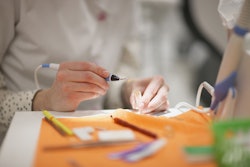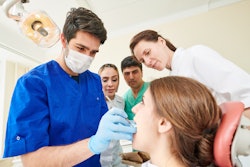Dental students report being moderately prepared -- at best -- to handle medical emergencies, highlighting gaps in training, according to a study published on September 7 in the Journal of Dental Education.
Therefore, steps may need to be taken to improve their skills, knowledge, and confidence in preventing medical emergencies, the authors wrote.
“The results of this study highlight significant gaps in practical training of dental students on the management of medical emergencies,” wrote the authors, led by Rebecca Glanville of the University of Plymouth in the U.K.
Identifying and managing medical emergencies in dental practices is a critical part of dental education. To evaluate the teaching methodologies and self-reported confidence of dental undergraduate students in managing medical emergencies, online surveys were sent to six dental schools.
The survey investigated multiple areas of teaching, training, and assessment of recognized medical emergencies, and a questionnaire evaluated the self-reported confidence of students. The survey's response rate was more than 50%, resulting in 727 student responses, according to the study.
Overall, students reported having either low or moderate confidence managing medical emergencies (α = 0.96). Also, the analysis showed significant variations in confidence based on demographics, with men, students age 26 and older, interns, and those at private institutions reporting higher confidence (p < 0.05), the authors wrote.
The study had limitations, including that it relied on self-perceived ratings of preparedness. Although self-assessment offered insights into the students' perspectives, it may not necessarily correlate with their clinical competence to handle emergencies, they wrote.
“The findings underscore the need to improve the teaching, training, and assessment of undergraduate students to improve their knowledge, skills, and confidence for prevention and enable them to manage medical emergencies promptly and effectively,” Glanville and colleagues wrote.




















